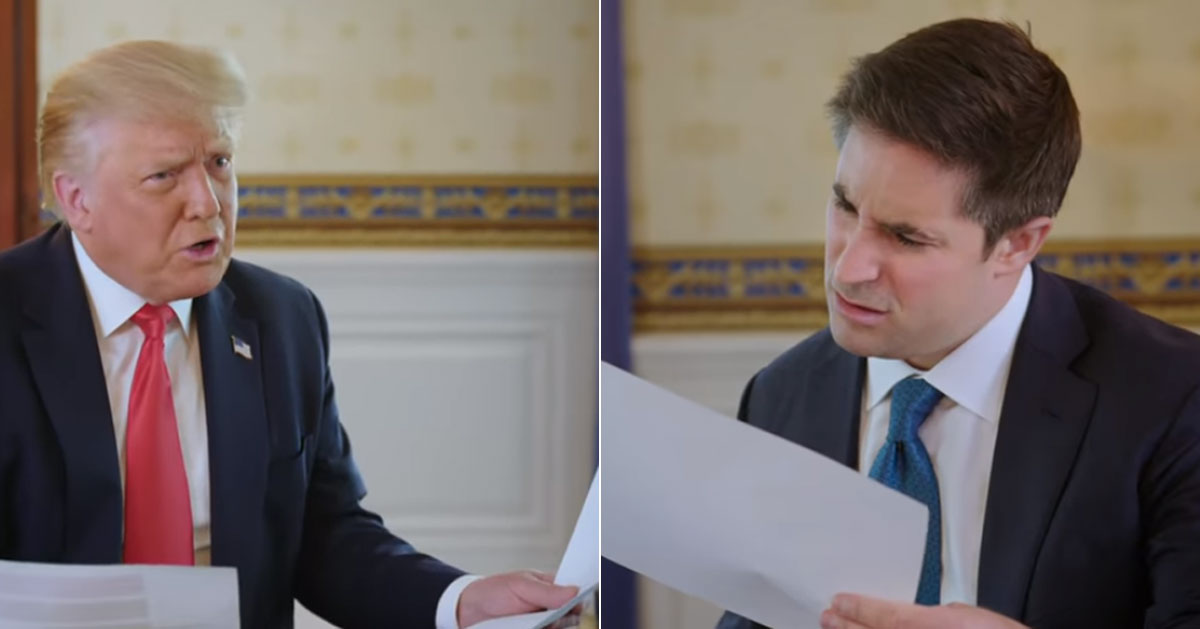Fans of The Office would enjoy the following President Donald Trump interview, which happened for real.
Here's a short sample:
Context: Trump was interviewed one-on-one by Jonathan Swan of Axios, which aired on HBO in the United States on Monday, Aug. 3.Within a day, the 37-minute clip was viewed 6.4 million times and made it to the top 10 videos on YouTube after it was published on the platform on Aug. 4.
What is great about it?: The style of the video and Trump's inability to answer basic follow-up questions when quizzed by Swan has set the "Lamestrem Media" in America on fire.
The interview was shot with cameras without using fixed stands, and the shots panned in and out of facial expressions and hand movements, which gave The Office effect.
One thing was clear from the video: Trump could not handle one-on-one situations with a reporter who asked follow-up questions.
The president did not have the luxury of calling on another reporter to change the question or subject when he could not answer a question, which he does often enough during press conferences.
Forced to clarify his arguments, he fumbled and could not respond.
It was not a great look.
Trump was noticeably stooped and bent into himself as he was made to sit on a lower chair as compared to the reporter.
Highlight of the interview:
A visibly confused Trump grasped for some explanation about why he thinks it’s not really a big deal that over 1,000 American are dying every day from Covid-19.
When the interviewer pointed out that only 300 people in South Korea have died, out of a population of over 50 million, Trump said: “You don’t know that.”
He was implying the Asian country is lying about its death rate. [Skip to the 13th minute in the video embedded below.]
In the end, the president’s only recourse was to lie or cast doubt on empirical data to brush aside why the percentage of the American population that has died due to Covid-19 complications -- to say that it isn’t really that important.
You can watch the full interview here:
If you like what you read, follow us on Facebook, Instagram, Twitter and Telegram to get the latest updates.
